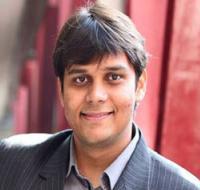
The allegations in a formal indictment issued in a New York court against an Indian national and an ‘identified Indian government employee’, among others, of plotting the murder of a US citizen active in the Khalistan movement are extremely damaging to the reputation of the country and those at the helm of national security.
Without getting into the legal details of the indictment and the case itself (for details see here), it is vital to contextualise the impact it can have on India’s global moral stature and foreign policy-security outlook. The current Indian government has aggressively pursued a policy of narrative control to please and project an image of a ‘global moral power’ and Vishwaguru (world leader) under Modi across each multilateral and plurilateral summit.
More often than not, it is authoritarian countries like Russia, China or North Korea which are in the news for alleged crimes conducted on foreign soil, damaging their reputation. Can one imagine how India’s intel and information sharing architecture with its democratic allies and partners may be disrupted after an episode like this?
In a previous article, this author argued how India’s paradoxical world outlook and waning moral stature in conduct on multilateral (and some bilateral) issues, cannot be enveloped nor hidden in some ‘green tented sheet’.
The US indictment also hints at what may have informed Canadian Prime Minister Justin Trudeau’s sensational September 2023 statement that there were “credible allegations” linking the Indian government to the murder of another Khalistan activist. While Ottawa has not revealed much in public – apparently to preserve the confidentiality of judicial proceedings, a piece published by The Wire says it is clear that “Canadian officials had the Pannun case in mind and that at least some part of the intelligence linking India to Nijjar has come in the form of electronic messages the US has captured”.

Gurpatwant Singh Pannun, a still image ofthe Advance Payment as shown in the DoJ indictment of Nikhil Gupta, and Hardeep Singh Nijjar.
We have now seen at least two instances of charges by India’s democratic allies and partners of not being ‘honest’ or ‘truthful’ to its global moral standing. In India’s own amoral, apathetic exceptionalism, there is also a silent embrace of Gandhi’s assassin Nathuram Godse, and his (Godse’s) ideological disposition, as against an embrace of Gandhian ideals of peace and non-violence which made India globally recognised and respected by all powers across the globe.
It’s also buffoonish for India’s foreign policy ecosystem to believe it enjoys an undistilled faith amongst the (still) powerful G7 countries if the tools for channelising instruments of economic integration operate sans the basic domestic prerequisites of realised social cohesion; a safeguarded rights-based constitutional order, ensured by the separation of powers. India can hardly compromise on these prerequisites if it is serious about playing a more important role in a complex, multi-polar world.
Also Read: From Nijjar to Pannun, Modi Government’s Recklessness is Undermining National Interest
The West’s more accommodative position on a number of contested issues – India’s position on the Israel-Palestine conflict, the Ukraine-Russia war, or on domestic issues like human rights, minority protection, and freedom of press – is rather explained by their greater contempt for an authoritarian China under Xi Jinping, than say, a need for developing bonhomie with India.
Modi’s New India – amidst a rising, ideological wave of Hindutva – embraces Godse’s violence and an eye for an eye vengeance-seeking mindset. This has nothing to do with social justice. Justice isn’t about seeking vengeance or revenge – it is much more than that.
Embracing violence and violent means of institutional propriety, and an apathetic conduct towards peace in India’s own domestic and subsequently international position, may, unfortunately, make the nation’s image regress, or fall into the same category of authoritarian nation-states (or ‘illiberal democracies’).
Collective self-interest is difficult to realise by an independently motivated self-interested state of individuals unless each state has some form of assurance that others will conform if it does. And that assurance requires the external incentive provided by the sovereign, who sees to it that individual and collective self-interest coincide. It is critical for any nation (including India) to realise this.
As The Wire‘s founding editor argued, India’s security history has been known to arm and train the Liberation Tigers of Tamil Eelam in Sri Lanka; and launching ‘surgical strikes’ on alleged terrorist sites inside Pakistan-controlled territory. But, India has never so far been associated with targeted assassinations abroad. New Delhi has shown no appetite for physically targeting wanted men or opponents overseas not necessarily beacuse of the lack of capability but a realistic political calculation about the associated risks and benefits.
What the current US indictment and the recklessness with which India responded to Trudeau’s allegations have done is put not just the current government but India’s own image and global position in the international security arena, in a more vulnerable position. It may cause more distance to be observed by democratic allies. Preferring Godse over Gandhi has a cost, not just in terms of an ideological, political disposition, but also from the perspective of foreign policy and how the world perceives the country in the near (and far future). Any Indian government and its leadership would be wise to recognise this.
Deepanshu Mohan is associate professor of economics and director, Centre for New Economics Studies, Jindal School of Liberal Arts and Humanities, O.P. Jindal Global University.






